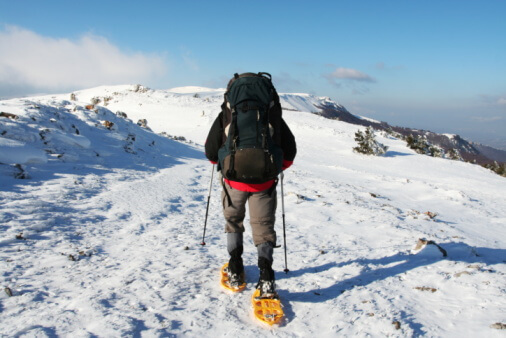Hypothermia is a dangerous condition where the body loses heat faster than it can produce it, resulting in a critically low body temperature. Because most cases happen slowly over a prolonged period of exposure, it can be a silent killer and sneak up on you when you least expect it. Be prepared, and watch out for the warning signs to avoid the cold clutches of death by hypothermia.
- Intense shivering
Shivering is the body’s natural response when the surrounding temperature drops too low. When your core body temperature drops, your body shivers as it attempts to regulate your temperature and keep you from losing body heat. It does this by telling the muscles to rapidly contract, thereby generating heat from the movement.

While shivering is your body’s response to a fever or when it feels cold, intense shivering that can hinder normal motor functions is one of the most easily recognizable signs of hypothermia.
- Hands and feet feel cold
As the body is further exposed to low temperatures, it will try to preserve heat and redirect it from the extremities (hands and feet) to the core. Blood vessels on the surface contract to keep the vital organs within optimal temperature and the person afflicted with the symptom becomes pale and feels really cold at the extremities.
- Clumsiness and difficulties focusing
Blood pressure decreases when a person advances to moderate hypothermia and the pulse slows down. A person affected by hypothermia becomes clumsy and unable to complete physical tasks. Their speech becomes slurred, making it difficult to understand them.
- Urinating More Often Than Usual
Increased urination also occurs during mild and moderate cases of hypothermia. Cold-induced diuresis is thought to be caused by the increase in fluid volume to your core, resulting in greater pressure to your arteries. With the increased pressure, your kidneys step up urine production as well to dump the excess liquid from your body.
- Irrational Behavior
In more advanced and severe cases of hypothermia, shivering will stop and there is a higher possibility of irregular heartbeat (arrhythmia). Irrational behavior such as taking off one’s clothes despite the low temperatures (also known as paradoxical undressing) and stupor can also manifest itself at this stage.
Brain activity will slow down at this point, and can make the affected person lose consciousness. During the later stages, the body won’t be able to produce much heat anymore to protect the vital organs, and death follows shortly after.

While deadly, hypothermia is an avoidable condition. Multiple layers of warm clothing make it easier to insulate the cold and regulate body temperature to safe and comfortable levels. Keeping the body dry and drinking fluids also help in regulating body temperature. If you or someone from your group is showing early signs of hypothermia, dry and heat-retention clothing should be provided, followed by evacuation to a warm environment, as soon as possible.


